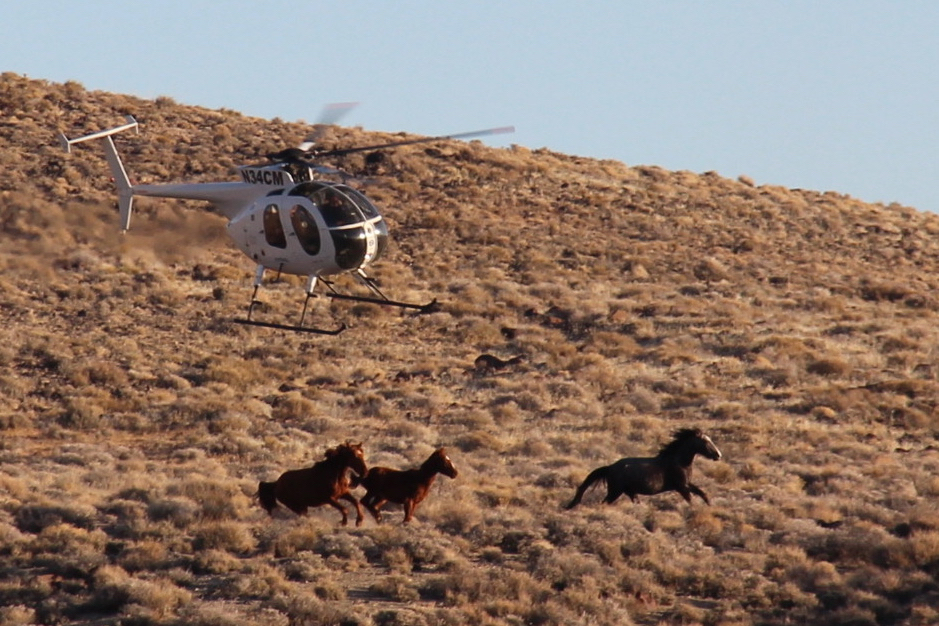Big Trouble Managing Mustangs
17:06 minutes

Some 75,000 wild horses roam the slopes and basins of the American West. They’re the descendants of the lost horses of conquistadors and cowboys, and the tribes that once ruled the plains. But the number of mustangs running wild is now 50,000 more than the parched desert lands can sustain, according to federal officials. And the growing population is largely protected by federal law, meaning the horses can’t be exterminated or otherwise harmed.
[Read an excerpt from Wild Horse Country.]
So, the Bureau of Land Management holds helicopter-assisted roundups every year in remote corners of Nevada and other western states, and trucks the trapped mustangs to Oklahoma and other greener pastures to live out the rest of their lives. The cost of rent for these aging horses is roughly $49 million a year. And the one thing nearly everyone can agree on—wild horse activists and officials alike—is that our current management strategy isn’t working.
In Wild Horse Country: The History, Myth, and Future of the Mustang, Pulitzer-prize-winning New York Times correspondent David Philipps tells the saga of these wild horses, from their evolutionary origins on the same lands they inhabit today, to the costly fights and government mismanagement encountered in more recent history. In the end, he arrives at a question that transcends ecology, ethics, and politics: How should we live with this symbol of the American West?
David Philipps is a Pulitzer Prize–winning national reporter for the New York Times and the author of Wild Horse Country: The History, Myth, and Future of the Mustang.
Christopher Intagliata was Science Friday’s senior producer. He once served as a prop in an optical illusion and speaks passable Ira Flatowese.